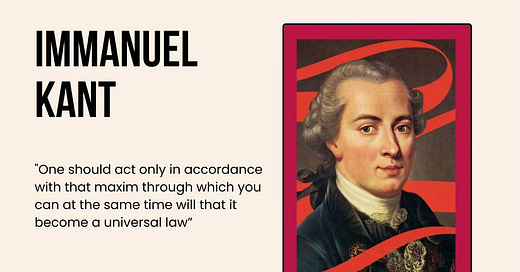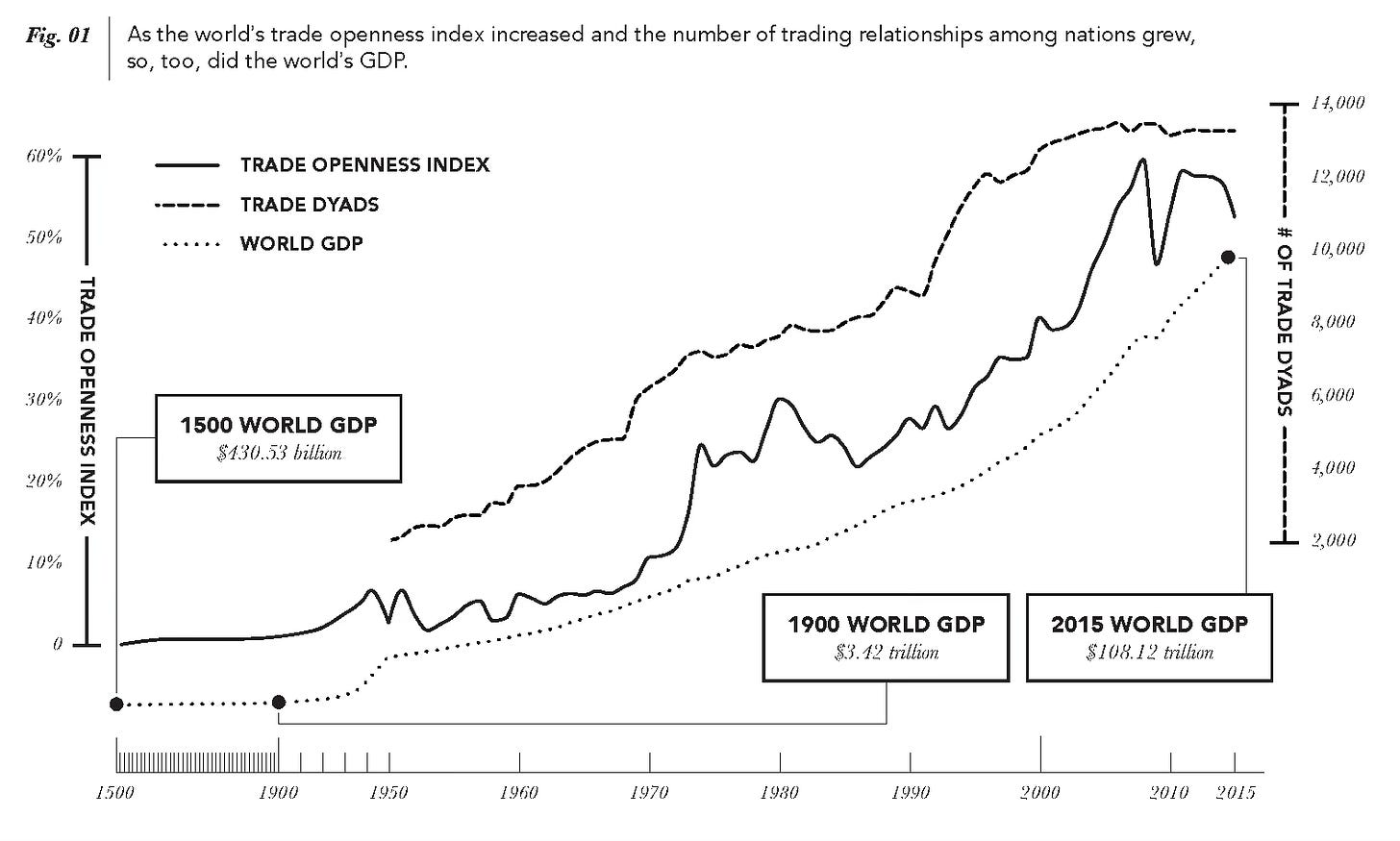When economic connectivity emboldens
The old assumption about interdependency ending conflict does not apply to great powers in a multipolar, Leviathan-less world
Economic determinists like myself believe that economic interdependency is a good thing, by and large tamping down interstate conflict (why war when trade is so good?).
Then there is the international liberal trade order as constructed and expanded and defended by the US for eight decades now — or what we call globalization. At the end of WWII, four-fifths of the world’s dyads (possible state-on-state ties) featured no direct trade. Today, with the number of potential dyads having hugely expanded along with the absolute number of countries (more than doubled since WWII), approximately three-quarters of those potential bilateral relationships (I say potential because nobody forces these relationships into being) DO feature direct trade.
As we note in this data visualization from America’s New Map:
The sheer number of trade dyads (Country A trades with Country X) has exploded since WWII — basically a seven-fold increase.
Now, despite all that extra connectivity, the frequency of state-on-state war has not increased.
Instead, it has come close to disappearing despite some signature conflicts like Russia-v-Ukraine.
What has increased dramatically is civil conflicts WITHIN states, something I would describe as a feature and not a bug of US-style globalization (i.e., my old Pentagon’s New Map argument that globalization’s reformatting of societies and economies is inherently destabilizing at first).
Note also the impact of US peak policing in the post-Cold War era: reviled by many, it was clearly associated with a reduction of overall strife. Plus, quite frankly, those “civil conflicts with foreign state intervention” was mostly us.
Keep reading with a 7-day free trial
Subscribe to Thomas P.M. Barnett’s Global Throughlines to keep reading this post and get 7 days of free access to the full post archives.






